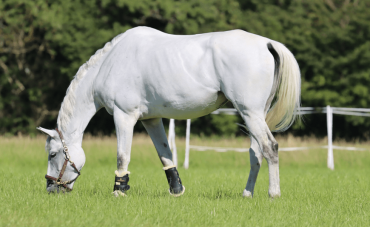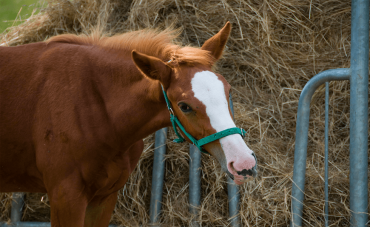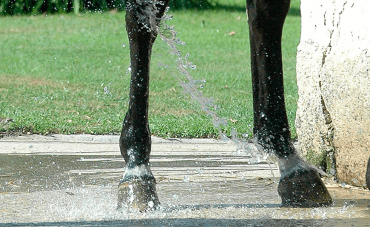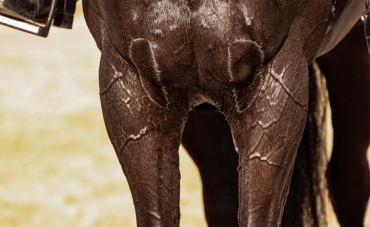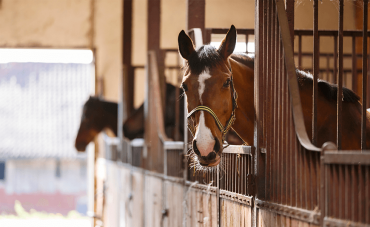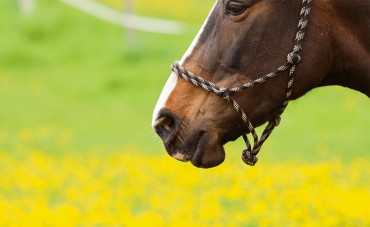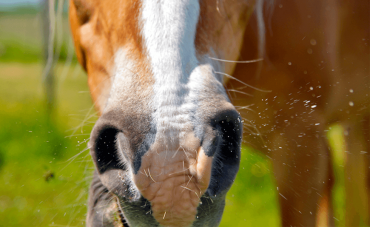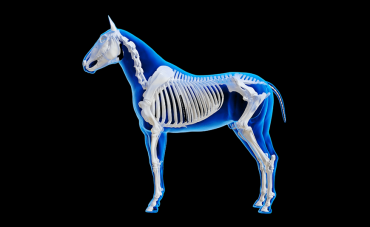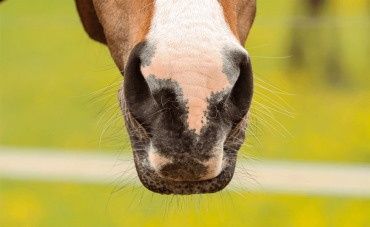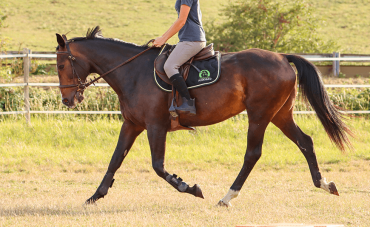As the cold and winter arrives, we help you understand how your horse's immune system works.
How does your horse's immune system work?
The immune system is the body's defence mechanism against pathogenic agents (bacteria, viruses, parasites, etc.).
To ensure its defence, your horse has a certain number of barriers that keep pathogens out of its body:
- In physical form such as the skin or mucous membranes.
- In the form of secretions such as mucus.
- In biological form, such as all the body's flora (intestinal, genital...) and the cells that take care of the body's defence (antibodies...).
However, despite the presence of these barriers, it is possible that a harmful organism can enter your horse's body. In this case the immune system will be activated and will provide a response. There are two types of response:
- The innate immune response (innate immunity): This response is instantaneous and represents the first defence. This speed of action is linked to the fact that it does not select the type of pathogen. Phagocytes are the cells that will intervene. Their main role is to eliminate pathogens (via what is called phagocytosis) to prevent them from multiplying in the body. Physically on your horse, this can result in the appearance of an area of inflammation (swelling, heat with or without pain)
- The adaptive or specific immune response (acquired immunity): This response is slower because it only takes place if innate immunity fails to control pathogens. This time, it is a response that will be specific to the harmful agent (virus, bacteria...). Its greatest strength is its capacity for memory. In essence, if ever the same pathogen reinfects the organism, then it will already be ready for the "counter-attack". This is the principle of how vaccination works. It is for this type of response that antibodies and lymphocytes will come into play.
For the different responses to be effective, your horse must have a healthy immune system.
The main immune system disorders that your horse can develop.
There are a very large number of pathogens that can cause your horse's immune system to malfunction. Here are some of the most common ones:
- A food deficit: A major part of the body's defence cells is in the intestine and belongs to the intestinal flora, the gut microbiome. Another reason to pay attention to this flora is that an unbalanced diet can lead to a weakening of your horse's immunity.
- An allergy: allergies are generally disproportionate immune reactions to an element foreign to the body (pollen, dust, etc.) which then becomes known as an allergen. Your horse's immune system will then fight this element which it considers harmful. The most common allergic reaction in horses is found in the lungs, it is called equine emphysema or asthma.
- Stress: overall stress will weaken your horse's body and therefore " confuse " the immune system, which will find it more difficult to defend itself against pathogens.
Your horse's immune system will evolve with its life and age. Thus, foals are born with a very weak immune system (which they strengthen in the first few hours thanks to the colostrum). With age, your horse will encounter more pathogens (naturally or through vaccination) and thus be able to improve its defences. Be aware that the immune system of a senior horse is more fragile and less efficient in case of an attack.
How can I help my horse's immune system?
To limit the environmental attacks and the various pathogens that your horse may encounter and to ensure a healthy immune system, here are a few tips:
- Adapt your horse's diet to its physiological condition, age and work.
- Pay attention to the impact of cold and humidity on fragile horses (senior horses, foals, sick horses...).
- Keep your horse in as healthy an environment as possible, ideally in a well-ventilated area Also pay attention to the proper cleaning of the different equipment used by the horse (stall, shelter, drinking trough, etc.).
- Limit sources of stress.
- Do not forget your horse's vaccinations. They protect it from many diseases, the consequences of which can be very serious.
- You can also support immunity during periods of risk (change of season or environment) with feed supplements that support your horse's immunity.
The good health of your horse depends on the good condition of its immune system. Do not hesitate to prevent declines in your horses immunity, and talk about it with your vet, who will be the best person to advise you.

